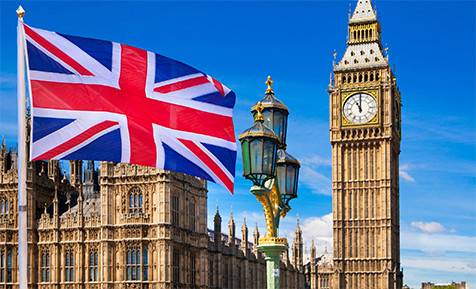UK Chancellor Rachel Reeves presented the government’s Autumn Budget to Parliament on Wednesday, announcing a series of measures aimed at raising revenue from workers, pension savers, and investors, in order to create fiscal space that allows her to meet the government’s borrowing targets.
Her remarks followed the unexpected publication of the Office for Budget Responsibility’s economic forecasts on its website prior to the budget announcement, an incident the OBR later described as a “technical error.”
The main measures announced by the Chancellor were as follows:
Freezing income-tax thresholds
The UK will freeze income-tax bands for an additional three years starting in 2028. The measure is expected to generate 7.6 billion pounds in the 2029/2030 fiscal year.
New tax on high-value homes
England will impose an additional local council levy on high-value properties beginning in 2028, including:
2,500 pounds annually for homes valued above 2 million pounds.
7,500 pounds annually for properties worth more than 5 million pounds.
The tax will be collected alongside existing council tax. It is expected to raise more than 400 million pounds by 2031 and will affect less than 1% of homes in the country.
Fuel-duty freeze
The government will extend the current freeze on fuel duty. The temporary 5-pence-per-litre cut, first introduced during the pandemic and due to expire in April 2025, will be extended until September 2026.
Successive governments have maintained the freeze since 2011 to avoid driver protests. Fuel duty remains a major source of revenue, generating roughly 25 billion pounds annually.
Ending the two-child benefit cap
The two-child benefit limit will be scrapped starting next April. The cap, imposed in 2017, prevents many low-income families from receiving additional support for a third child and beyond.
The OBR estimates that removing the cap will cost the government 3.1 billion pounds in 2029/2030.
New road-use charge for electric vehicles
A new distance-based charge for electric and plug-in hybrid cars will take effect from April 2028, set at:
3 pence per mile for electric vehicles.
1.5 pence per mile for plug-in hybrids.
The measure is expected to raise 1.4 billion pounds. The OBR noted it will offset roughly one quarter of the government’s projected revenue losses by 2050 due to the shift away from petrol and diesel.
Raising dividend taxes
The government will increase dividend-tax rates by two percentage points starting in April 2025:
The basic rate will rise to 10.75%.
The higher rate will increase to 35.75%.
Changes to business-property taxes
Reeves said reforms to Business Rates will include:
Higher taxes on high-value commercial properties.
A permanent tax reduction for more than 750,000 retail, hospitality, and leisure businesses.
The cuts will be funded through higher taxes on commercial properties valued above 500,000 pounds, including large corporate warehouses used for online operations.
Reform of the Motability programme
The Motability scheme, which allows people with disabilities to lease state-funded vehicles, will undergo reforms aimed at reducing what Reeves described as “generous support” funded by taxpayers.
Reduced pension-tax allowances
The government will introduce a 2,000-pound annual cap on contributions that can be transferred into pension funds before National Insurance is applied, beginning in 2029. The measure is expected to generate an additional 4.7 billion pounds in the 2029/2030 fiscal year.
Lower tax-free savings allowance
The annual tax-free savings limit for ISA accounts will be reduced from 20,000 pounds to 12,000 pounds for most savers beginning in April 2027, while those aged 65 and above will retain the full allowance.
Lower household energy bills
The UK will reduce the average household energy bill by 150 pounds per year starting next April by shifting some costs into general taxation and reducing the size of the home-improvement support programme.


